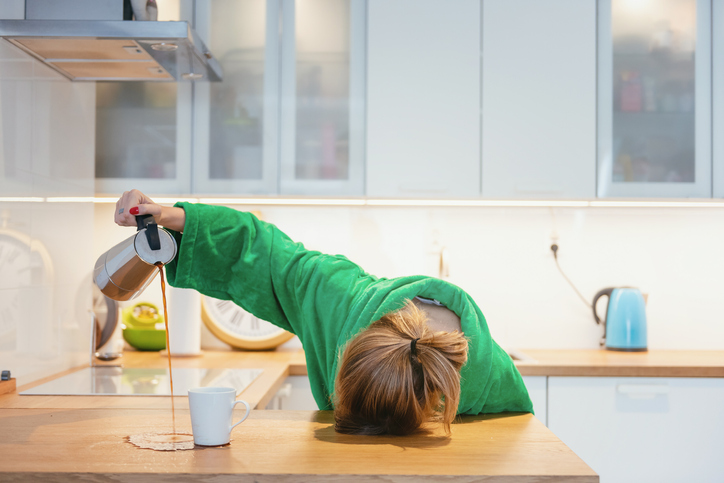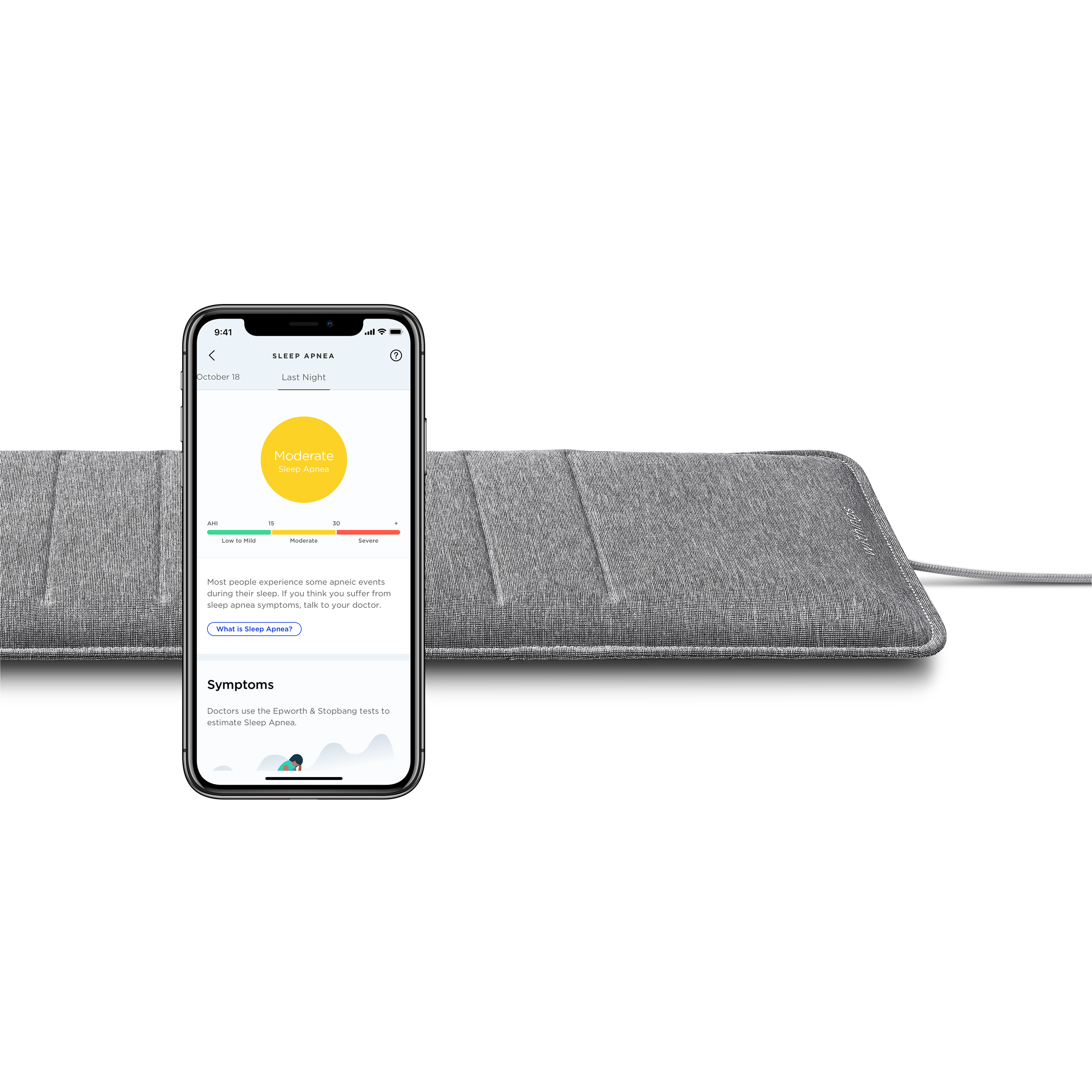
Jolted awake in your bed to the sound of a high-pitched alarm—what time is it? What day is it? Maybe it feels like you’ve been asleep for about 30 seconds, and you could sleep for 30 more years. We’ve all been there. And the prospect of facing the day after a less than ideal night of sleep is daunting.
There’s lots of tips and tricks out there for sleeping well, and they are super important to implement. But if you still feel like you’re struggling when the morning comes around, and are wondering what else could be getting in your way, we’re here to help. Read on to meet the top ten sleep killers you may not have considered.
1. Phones & Tech
Scrolling on your phone in bed keeps the brain awake when it should be winding down, which can delay the time you’ll actually fall asleep. Plus blue light, the light emitted from screens, actually mimics daylight and can restrain the production of melatonin—the hormone that regulates your sleep wake cycle. However, more passive tech activities like listening to music, reading an e-book or watching a not too stressful TV show doesn’t seem to negatively impact sleep, if you want to incorporate those.
2. Stress
Ah, stress. It’s hard not to bring it home with you, from school or work, or just life in general. For a lot of people, laying in bed provides a quiet, distraction free environment that is perfect for ruminating on any stress you’re experiencing or anticipating. Stress can not only make it difficult to fall asleep, but it can also switch your body into high-alert mode by raising levels of hormones like cortisol, causing you to wake up more often or have bad dreams.
3. Noise
Different forms of environmental noise that can happen while you’re trying to sleep, like cars outside or noisy stomping neighbors, can also raise levels of stress hormones like cortisol and adrenaline. Plus, extraneous noise has been shown to decrease the amount of slow wave or REM sleep you’re able to get, by keeping you in “stage 1” sleep, or a very light stage of sleep where you could be easily awakened.
4. Bad Sleep Gear
If you’re tossing and turning throughout the night, bad sleep gear could be the culprit. Your pillows and mattress can greatly effect the quality of your sleep. They can lead to waking up with consistent aches and pains, particularly in your neck and back, build up of allergens or dust mites, and excessive heat retention. Most mattresses are only meant to last about 10 years, so if you aren’t sure how old yours is, it might be time to start shopping! If you struggle with light, noise or temperature issues in your room, investing in additional sleep gear might be a good choice—think things like black out curtains, an eye mask or a white noise machine.
5. Kids & Pets
There are certainly pros and cons to having your babies or fur babies sleeping in your bed. Inevitably, pets and kids will move around during the night—and these disruptions can cause “micro-awakenings’ ‘ that pull you out of deep sleep, even if you don’t fully wake up. People who struggle with their breathing might want to abstain from sleeping with pets due to the increased amount of hair and allergens that will be in the bed. But even if your kids don’t sleep with you regularly, just having kids means you’ll be treated to unavoidable wake up calls all throughout the night and into the early morning.
6. Alcohol
Alcoholic beverages (and the fun outings that usually accompany them) may seem to help you fall asleep initially, but the negative effects of drinking too much tend to outweigh the positives when it comes to sleep. In the second half of the night especially, as the alcohol is broken down and metabolized by your body, it actually activates your system—leading to fragmented sleep, disrupted breathing and stressful dreams. And, getting up to discover you have a pounding headache won’t usually set the tone for a great day.
7. Snacking
The term “late night snack” was coined for a reason—if you tend to crave carb-loaded sugary treats after dinner, this may be a sign your circadian rhythms are already out of balance. When you indulge in snacking right up until the time you go to bed, the muscles you use to digest the food need to continue working when they should be resting. This can slow up your ability to get into the deepest and most restful stages of sleep, as well as cause spikes in blood pressure and blood sugar. However, not all snacks are made alike, and things like greek yogurt or almonds are usually a safer bet than chips or candy.
8. Travel
Jetting off to new places is exciting, and usually the last thing you’re thinking about while traveling is sleep. Yet, travel affects sleep in many ways, including change in sleep environment, routine, general exhaustion or stress related to traveling long distances. If you’re jumping time zones, jet lag is especially difficult to deal with. Jet lag happens when your body’s internal clock needs to adjust to the time at your destination—it can not only affect sleep but your memory and gastrointestinal tract as well. Good news? Many airlines now feature dynamic lighting in the cabins to help wake you up or help you drift off.
9. Caffeine
Caffeine and bad sleep go hand in hand—some might even say they form a vicious cycle of sorts. You toss and turn all night, wake up groggy, drink a huge cup of coffee (or 3) and boom, you feel better, for now—until it’s bedtime and you feel like you could run a marathon. So, you stay up late, the alarm goes off and…the cycle continues. Caffeine is a stimulant best used in moderation, particularly if you find yourself sipping on it later in the day. It has a half-life of about 3 to 5 hours, which means that only 50% of the caffeine you consume will still be circulating in your bloodstream 3 to 5 hours after you consume it. And considering the popularity of XL iced coffees and energy drinks people consume at all hours, it’s no surprise caffeine holds such a strong grip.
10. An Erratic Schedule
If you’re just getting started on improving your sleep, structure is a good place to start. With sleep, consistency is truly key. Staying up till the wee hours or sleeping in super late will inevitably happen, but the more regular you can keep your sleep schedule, the better off you’ll be—having an erratic schedule can actually be linked to a higher risk of metabolic disorders and weight gain. The ever-important circadian cycle works best when your body knows what to expect. This is when you’ll find it easier to fall asleep, get high-quality rest and hopefully wake up to have a productive day to follow.
The top ten sleep killers are likely to appear in your life at one point or another. However, there’s plenty of great sleep tips and advice out there to help you with everything from dealing with seasonal changes to real life inspo on how high quality sleep can lead to better health. Happy snoozing!

